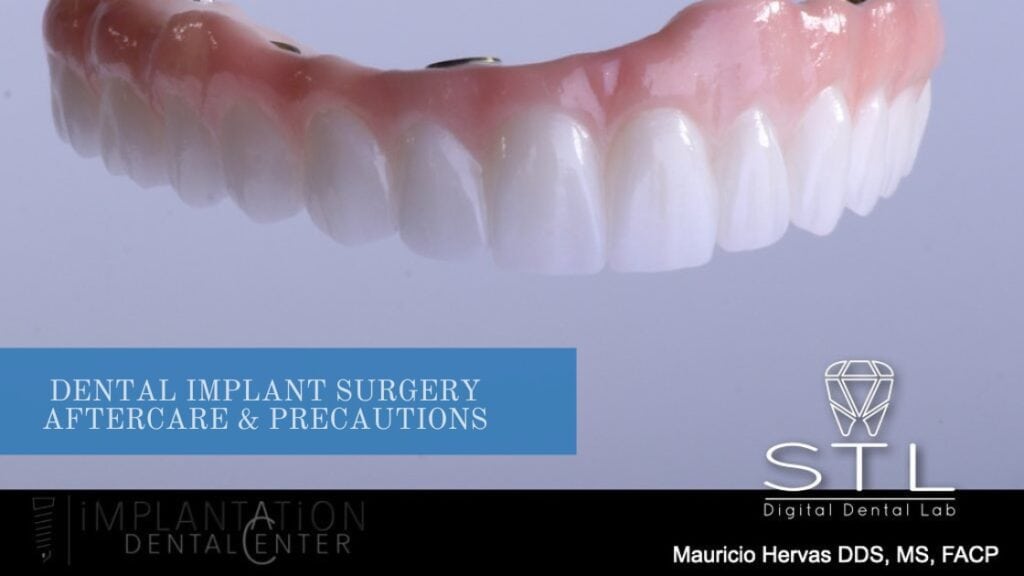Dental implant surgery aftercare is a set of precautions that every patient must take, to ensure that the implant heals properly and to minimize the risk of complications.
Dental Implant Surgery Aftercare Instructions
- Manage pain and swelling: After the surgery, it is normal to experience some pain and swelling in the treated area. Your dentist will likely prescribe painkillers and provide instructions for managing swelling, such as applying ice packs.
- Follow a soft food diet: For the first few days after surgery, stick to soft foods like soup, yogurt, and mashed potatoes. Avoid hard or crunchy foods that could damage the implant site.
- Keep the implant site clean: Your dentist will provide instructions for cleaning the implant site, which may include using a special mouthwash or an oral irrigator. Follow these instructions carefully to prevent infection.
- Avoid smoking and drinking alcohol: Smoking and drinking alcohol can slow down the healing process and increase the risk of complications. Avoid these activities for at least a few days after surgery.
- Be gentle with the treated area: Avoid touching or rubbing the treated area with your tongue or fingers. This could dislodge the implant or cause irritation.
- Attend follow-up appointments: Your dentist will likely schedule several follow-up appointments to check on the progress of your implant. Attend these appointments and follow any additional instructions provided by your dentist.
By following these precautions, you can help ensure that your dental implant heals properly and that you can enjoy a healthy, functional smile for years to come.
When will the inflammation peak?
Inflammation after dental implant surgery typically peaks around the third day after the procedure. During this time, you may experience the most swelling, pain, and discomfort. However, it’s important to keep in mind that everyone’s healing process is different, and your experience may vary depending on various factors such as your age, general health, and the extent of the surgery.
After the third day, the inflammation should gradually subside over the course of the next several days to weeks. Your dentist may recommend pain medication, ice packs, or other methods to help manage inflammation and discomfort during this time.
If you experience excessive or prolonged inflammation, or if you have any concerns about your healing process, be sure to contact your dentist for guidance and advice. They may want to evaluate the implant site to ensure that healing is progressing properly and to rule out any complications.
When can I begin exercising?
After dental implant surgery, it’s important to avoid physical activity for at least 48-72 hours to allow your body to properly heal and minimize the risk of bleeding, swelling, and other complications. During this time, it’s important to rest and avoid any strenuous activities or exercises.
After the initial 48-72 hour period, you may be able to gradually resume light exercise such as walking or light jogging, as long as it does not involve any impact or jarring movements that could potentially disrupt the implant site. However, it’s important to listen to your body and avoid any activities that cause pain, discomfort, or excessive swelling.
You should avoid any activities that involve heavy lifting, straining, or intense physical exertion for at least a week or two after surgery. Activities such as weightlifting, running, and contact sports should be avoided until your dentist gives you the green light to resume them.
Ultimately, the timing of when you can begin exercising again will depend on the specific details of your surgery and your individual healing process. It’s important to follow your dentist’s specific instructions and recommendations to ensure that you heal properly and minimize the risk of complications.
Call our office and schedule your appointment. Dr. Hervas is a board certified prosthodontist ready to help with your dental needs.



